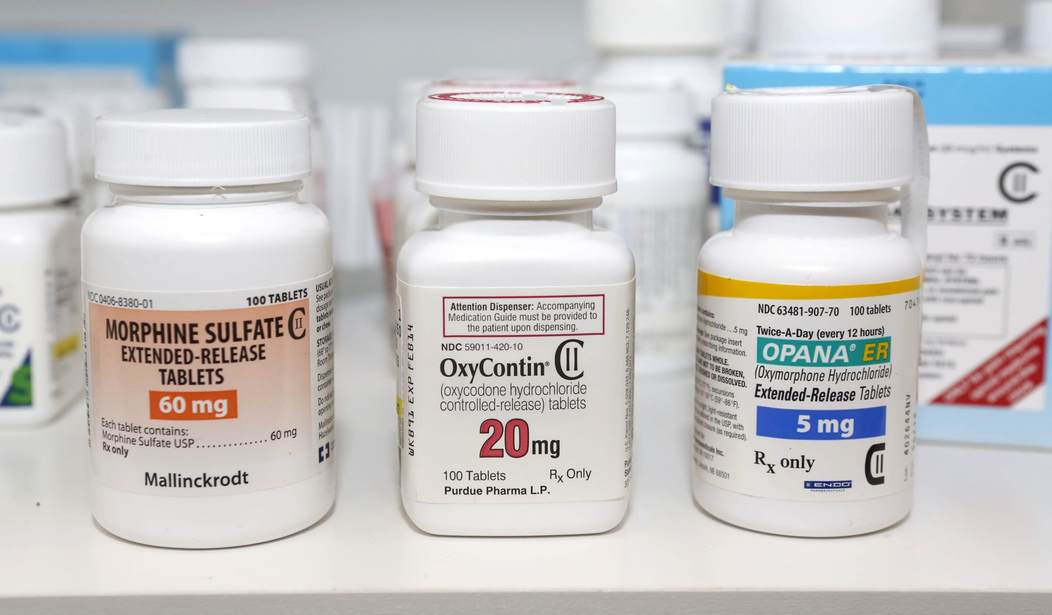WASHINGTON – After more than three years since Marine veteran Jason Simcakoski’s death, his father on Wednesday said that the pill-mill atmosphere that led to his son’s opioid overdose at the Tomah Veterans Affairs Medical Center has dissipated.
“It was more like a dictatorship run when my son was there,” Marvin Simcakoski told Congress. “That atmosphere is gone by the wayside now. Now you can bring things up. … It’s definitely a much better and positive atmosphere there now.”
The Simcakoski family reached a $2.3 million settlement with the federal government last month following a years-long battle over a wrongful death lawsuit stemming from the August 2014 drug overdose at the Tomah, Wis., facility.
Simcakoski, while speaking before the Senate Appropriations Subcommittee on Military Construction and Veterans Affairs, described how his son’s doctor at the facility ignored cries for help, and the patient advocate argued over medication levels. The 35-year-old Jason Simcakoski, who served from 1998 to 2002, was receiving treatment at the facility for complications associated with a severe head injury he suffered while enlisted.
“I asked (the patient advocate), ‘So you’re a doctor now, too?’ Because she thought that I didn’t know anything, and she was sticking up for, instead of the patient, she was sticking up for the facility, when I thought she represented the patient,” Simcakoski said.
He explained how the last text message he received from his son had been a plea for help, that his son couldn’t “take it anymore.” The prescription the doctor had written was making him “go crazy,” and he was told that if he didn’t take it he would be kicked out of the facility, according to Simcakoski.
At one point, the father went over the doctor’s head and sought a second opinion at the facility, which caused the situation to explode. Simcakoski, who is a construction worker, said that the doctor told him that he may know how to hammer nails and build homes, but “you don’t know anything about your son, and you made it worse by going over my head.”
Today, Simcakoski said he can call the facility on behalf of a veteran, talk to someone about the issue and get a response that same day. Since his son’s death, he’s become somewhat of a liaison for veterans and veteran families. Much of the reform he attributed to passage of the Jason Simcakoski Memorial and Promise Act, a bill spearheaded by Sen. Tammy Baldwin (D-Wis.) and Rep. Gus Bilirakis (R-Fla.).
Not all the feedback Simcakoski has received has been positive, for the impacts his son’s story has had on opioid prescription procedures both in public and private practice.
“Some people were mad,” Simcakoski said. “Some people would say, ‘Hey, we can’t get the same pain meds now because of what happened with your son.’ I’m like, ‘Well, I’m just trying to save your life. If you don’t like that, that’s up to you, but look at what happened to our son.’ The ultimatum was death. You can only go so high with medications, and once you’re maxed out, there’s no place to go but death. It’s just like with alcohol or anything else. Your system can only tolerate so much of it.”
Sen. Brian Schatz (D-Hawaii) noted during the hearing that the easy response has been to scale back opioid prescription levels, but he asked what Veterans Affairs is doing for service members who are still suffering and are in need of pain relief.
Chief Officer for Specialty Care for the Veterans Health Administration Laurence Meyer said that every individual situation has to be tailored differently. Back pain differs significantly from chronic headaches, for instance, he said, while explaining that the agency is trying to find ways to expand options for yoga, tai chi, acupuncture and conventional physical therapy. There is also the issue that many veterans suffer from chronic pain, as well as mental health issues, which makes each patient’s needs more specific.
Sen. Lisa Murkowski (R-Alaska) discussed her own “recreational” injury, for which she went through physical therapy. She warned Meyer against capping the amount of visits a patient might get for physical therapy, which is an issue she said she witnessed firsthand while in treatment.
Meyer said that the VA is trying to find the proper balance between avoiding the bureaucratic nightmare of approving every single physical therapy visit and writing blank checks for treatment.









Join the conversation as a VIP Member